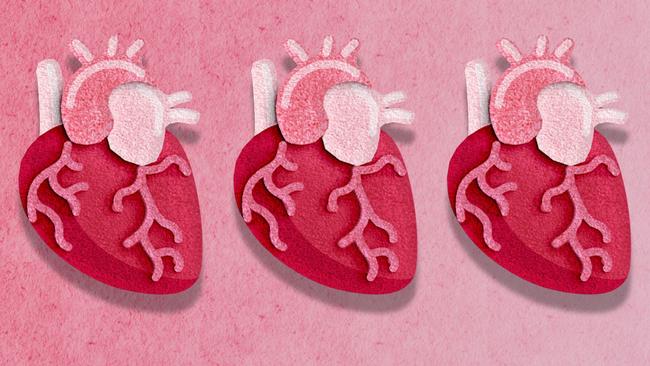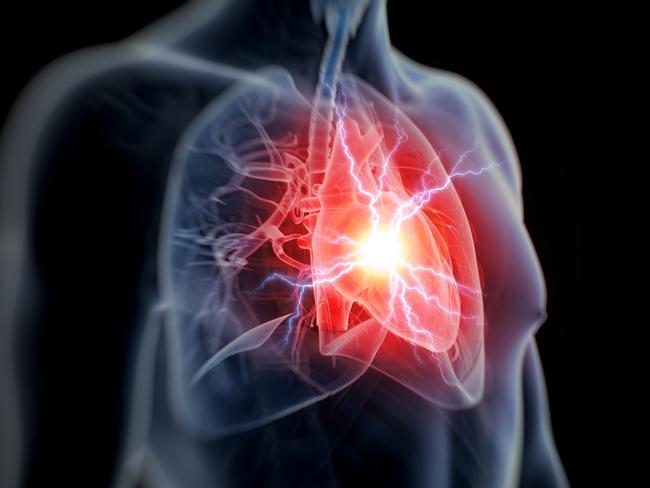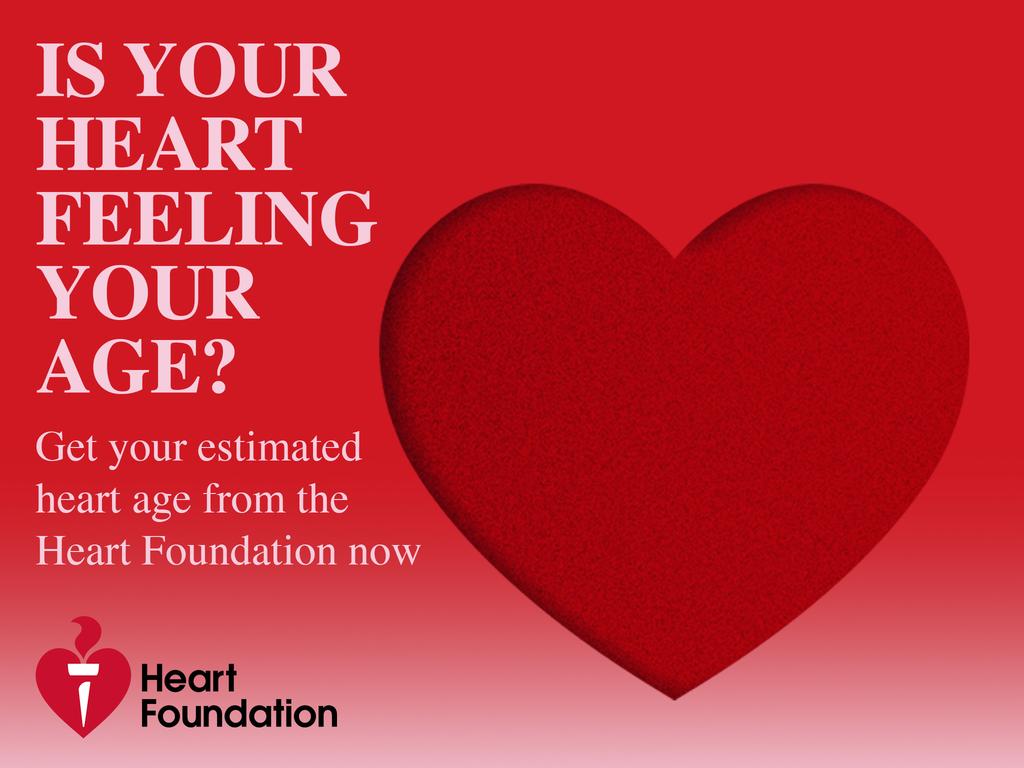A doctor explains what you can do to reduce the risk of a heart attack

Many babies are born with congenital heart disease. Valvular heart disease due to rheumatic fever remains one of the enduring tragic gaps observed between Indigenous and non-Indigenous Australians. The most common type of heart disease in Australia is coronary heart disease.
CHD occurs when blockages in the coronary arteries prevent oxygen flow to the heart muscle itself. A heart attack, or acute myocardial infarction, occurs when the coronary arteries are blocked by a blood clot.
It is frustrating to treating doctors when unproven approaches to chronic disease are preferred to evidence-based treatments. It is just as frustrating when individuals do not take advantage of proven measures to reduce their risk of harm.
In simple terms, the risk factors for coronary heart disease include hypertension (high blood pressure), cigarette smoking, high cholesterol (hypercholesterolaemia) and diabetes.
Not everyone with hypertension needs to take anti-hypertensive medication. The relative risks and benefits of taking different medications need to be weighed up. For some people weight loss, reducing alcohol consumption and reducing dietary salt intake will be sufficient. Others will need to take one or more prescription medications.

Australia has had great success with smoking cessation. However, it remains an ever present public health challenge to maintain low rates of cigarette use in our country. Australia has led the world in certain initiatives to reduce tobacco consumption. It requires ongoing vigilance against the corporations that sell these products legally and the black-market operators who prey on individuals addicted to this most harmful of vices.
The role of cholesterol-lowering medications is again a conversation that requires finesse and a good relationship with a trusted GP. High cholesterol levels as an isolated risk factor may not require medication. Some patients will require only lifestyle measures, such as dietary improvements and weight loss. Side effects can occur and need to be managed or a different agent considered.
Diabetes prevention is very important. The effect of high blood sugar levels on small blood vessels in various parts of the body has a silent yet so often ultimately catastrophic effect. Again, lifestyle measures such as weight reduction and physical exercise to improve sensitivity to insulin are extremely important. Some patients will require medication. There is great excitement about the potential of GLP-1 agonists for diabetes.
Medicare item 699 provides for a GP to see a patient aged 30 or older for a heart health check. Your doctor will collect a patient history, perform a physical examination, measure and record your blood pressure, test your cholesterol and provide you with preventive healthcare advice and a management plan.

Based on this information a GP may recommend a test such as a coronary artery calcium score. This is a specialised CT scan looking for plaque blocking the coronary arteries. Detailed discussions with your GP are important in assessing the pre-test probability. You also should consider what you are going to do with the result.
Are you prepared to make lifestyle modifications? Are you prepared to take preventive medication? Do you understand the risks of a coronary angiogram if that is needed to help define the most appropriate treatment plan?
Some patients receive good news. Others will be prescribed medication. Individuals with significant blockages of the coronary arteries may require an angioplasty and stenting to restore normal blood flow or open heart surgery in the form of coronary artery bypass grafting. The important point is that something can be done about it.
A couple of years ago I had a CT coronary angiogram. My GP and I discussed the risks of the test, the out-of-pocket cost of the test and, most important, what I was prepared to do with the results of the test.
I was lucky. My coronary arteries are pristine. The cardiologist who performed my test was a friend from medical school. He told me to get off the phone to him and thank my parents.
There is of course a major effect of genetics on predisposition to high blood pressure, to high cholesterol levels and even to laying down plaque when those risk factors are at play. But individuals should do everything they can to avoid the misery and suffering of heart failure and the tragedy that sudden cardiac death means for those they love who are left behind.
There is so much to be proud of in terms of prevention of CHD in our country. There remains great inequality across Australia in terms of the burden of disease. It remains an ongoing public health challenge. But individuals can do their bit to reduce their risk of disability and disease.
Michael Gannon is a consultant obstetrician and gynaecologist with 18 years’ experience as a specialist. He has delivered more than 5000 babies. He served as president of the Australian Medical Association from 2016 to 2018. He is president of leading professional indemnity provider MDA National.
This column is published for information purposes only. It is not intended to be used as medical advice and should not be relied on as a substitute for independent professional advice about your personal health or a medical condition from your doctor or other qualified health professional.







Heart disease kills an Australian every 20 minutes. That is almost 80 people every day. While the reduction in deaths from heart disease in recent years is an Australian public health success, it still causes more than one in six deaths. Men are likelier to be hospitalised and likelier to die from heart disease.